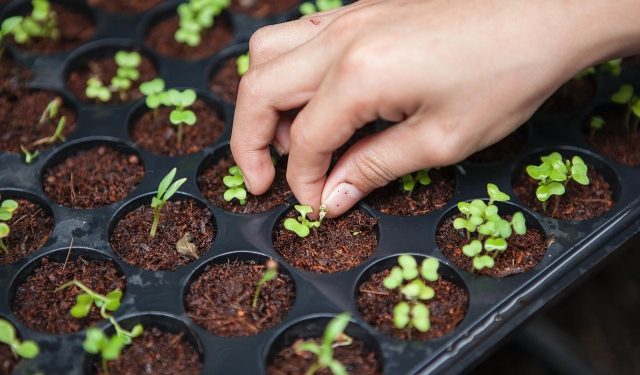Seeds for many agricultural crops in Russia turned out to be imported by more than half, and sometimes by 100%. Is there an alternative to Western seed materials and will the end consumer notice these changes – more on this in the Business FM material.
“The lack of alternatives will affect diversity”: more than half of the seeds for crops in Russia are imported from Europe and the USA
The Ministry of Agriculture responded to the author of the project “20 ideas” about walking dogs
Advertisement Relap
Russian seed producers asked for subsidies of up to 70% for farmers to purchase domestic seed. They also proposed to gradually quota the import of seeds from abroad, as their domestic production grows.
The critical dependence on foreign supplies for many agricultural crops has been talked about for a long time, but only last year the problem acquired a practical character. Last season, Russia lost 20% of oilseed sunflower seeds. At a joint meeting of the committees on agrarian issues of the State Duma and the Federation Council, the following figures were heard: 97% of material for sugar beet is imported from abroad, oilseed sunflower – 77%, corn – 50%, rapeseed – 40%.
Of the 140 billion rubles of the Russian seed market, about 80% of this amount goes to the EU countries and the United States. According to the Russian Academy of Sciences, about a quarter of potato seeds are also imported in Russia. Onions, carrots, cabbage are almost 100% imported.
There is also a completely exotic deficit, the Russian Academy of Sciences notes. For example, bumblebees, which are necessary for pollination of crops in greenhouses. By the way, the greenhouses themselves are also often built by foreign specialists and on foreign equipment, and it is impossible to enter them with Russian seeds under the terms of the contracts.
According to media reports, in some farms in Siberia, the share of foreign seeds reaches 100%. In the south of Russia, in the Krasnodar Territory – up to 35%. The lack of alternatives to imports may ultimately affect the diversity of the assortment in Russia, believes Dmitry Yanin, chairman of the board of the International Confederation of Consumer Societies.
“For many years, Russia has been importing seeds from the leading countries of the world. Mostly from Western countries. Therefore, if the company announced the termination of relations with Russia, then it will be difficult to replace these products. It will be necessary to look for analogues in the markets of Asian countries.
For agriculture, such delivery is difficult. Theoretically, it can be imported through Kazakhstan, Armenia, but I think that foreign companies will eventually eliminate this kind of loopholes. You can negotiate and bring it through a third country, but in general Russia is vulnerable in this regard. The diversity of many cultures may be lost.”
Experts and market participants note that even with the introduction of quotas and subsidies, it will be possible to cover at least 70% of the needs for seeds at the expense of domestic producers, depending on the crop, either by 2025 or by the 30th year. The full development of domestic seed selection will take 10-15 years.
Previously, Business FM reported a 2.5-fold increase in prices for salmon species. This is due to the cessation of imports of salmon and trout from Chile and the Faroe Islands. After the termination of cooperation, the Murmansk plant became the only supplier. Restaurateurs report that there is simply nothing to replace imported fish. Trout grown in the Krasnoyarsk Territory is not suitable for the menu because of the “swampy smell”.










